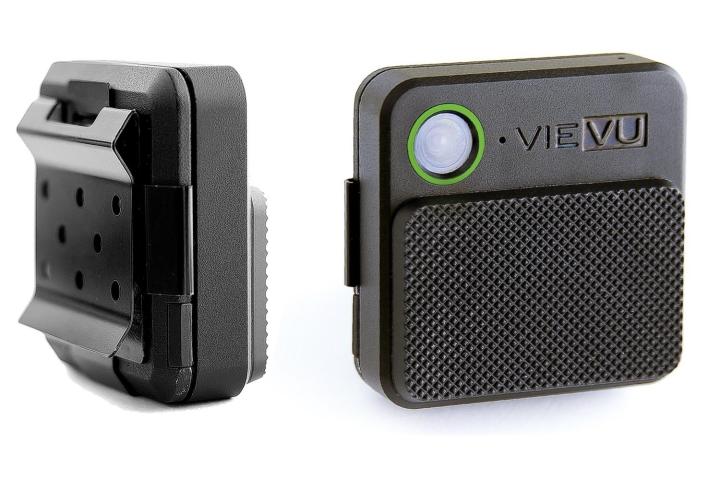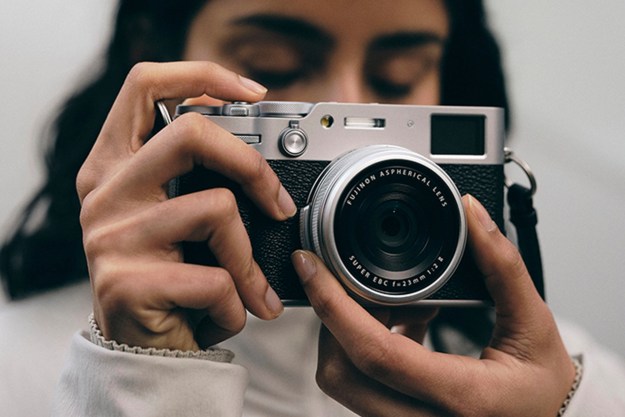

Vievu may not be a household name, but the company has actually been making wearable cameras since 2007. But the reason you’ve probably never heard of them is because Vievu makes cameras for law enforcement. You may have read in the news lately that many police departments are equipping their officers with wearable cameras on their uniforms, as a way to document an incident in order to protect the officer and any person involved. (With recent news concerning police conduct, visual documentation has become even more important for both the public and the police.) Most of those cop cameras are made by Vievu, which feature a proprietary, secure file-management software that’s received top scores in lab analysis from agencies such as the Department of Homeland Security.
“Right now we’re deployed by over 4,000 police agencies and in over 16 countries,” says Steve Lovell, president of Seattle-based Vievu. “Clearly the market leader, we own about 80 percent of the market share.” A veteran of the Oakland Police Department in California, Lovell heads the company with CEO and founder Steve Ward. Ward, who’s a veteran of the Seattle Police Department, created the company after seeing the need and benefits of having a camera strapped to a uniformed police officer on bicycle patrol. (The company’s slogan is, “Made by cops, for cops.”)
Related: Sony’s wearable Lifelog camera moves one step closer to watching your every step
With more and more people documenting their lives with cameras, questions concerning privacy arise. As a former police officer, Vievu’s Steve Lovell reminds us of the following things to remember.
- You can object to being filmed by a police officer. Even if video is recorded, your stated objection could be treated as a motion to suppress evidence.
- While HR admins could use a camera to document a hearing, they cannot share the video with irrelevant parties.
- If you’re using a camera to take notes at a job site, inform anyone that they are being recorded for such a purpose. Do not record inside anybody’s home without reason.
“[Prosumer means] it’s designed for professional consumers who have liability in their lives,” Lovell explains. “Somebody [who’s conducting] inspectional services, who may want to document for efficiency and accuracy. You could be a structural engineer and record where your body is pointed and talk into the camera so you can provide commentary.
“HR is often disregarded but it’s a big liability point for businesses,” Lovell adds. “If you’re conducting an administrative hearing with an employee, you might want to record that. If you’re terminating an employee, you might want to record that because retaliation claims are probably the largest litigation from a termination, according to the Department of Labor. So our products are really designed to offset liability and to accurately and efficiently record [an event].”

The Vievu2 is similar to many wearable POV camera, and you can easily clip it to your clothes (other mounting options are available). It’s compact, lightweight, and portable, records video up to Full HD, and pairs with iOS and Android devices (there’s Wi-Fi for Live Streaming). But instead of using removable SD cards, it has 16GB of built-in storage. What really separates it from popular action cams is its police cam DNA, which means a tough military-grade aluminum construction.
“We’ve always been known for rugged and durable products…that cops trust,” Lovell says. “The Vievu2 is close in concept to our law enforcement product, with a large slide front [that opens and closes to reveal the 95-degree lens]. It’s got a nice feel in your hands, it’s feature rich – it’s current with today’s consumer expectations [but] leveraging what our customers experience in a law enforcement workspace in the professional market.
“That’s the driving point of this product: We got a lot of people buying our law enforcement product that didn’t have a need for that.”
Lovell says Vievu isn’t actively marketing the Vievu2 toward the consumer market, but for anyone who wants to shell out $350, the camera is more than capable for capturing lifestyle activities, whether it’s surfing, skiing, or walking around the neighborhood (the company does mention lifestyle applications on its website, however). “It’s a camera first, people may use it in that fashion, but it’s not how we are marketing our product,” Lovell says, but he thinks consumers would be attracted by the Vievu2’s qualities.
So while Vievu may indeed be joining a crowded space with its first non-industrial product (not to mention that, performance wise, the Vievu2 doesn’t differ greatly from POV cameras already in the market), it could find success in going after a specific customer with a product that appeals to all.


